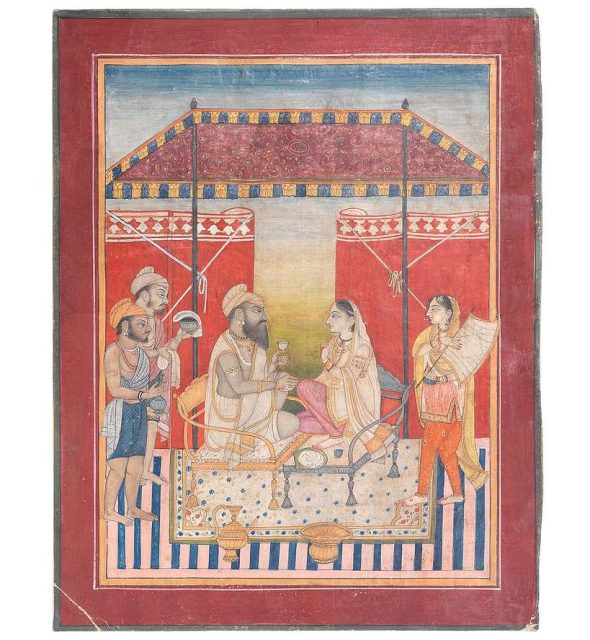BHAG SINGH, RAJA (1760-1819), born on 23 September 1760, succeeded his father, Gajpat Singh, to the gaddi of Jind state in 1789. He was a man of extraordinary vigour, intelligence and diplomatic astuteness. Like his father, he was also a close ally of Patiala and joined hands with Bibi Sahib Kaur`s troops in 1794 against the Marathas. He was mainly responsible for checking the advance of George Thomas towards Sikh territories and later on of General Perron of the Maratha service.
BUTA SINGH, DIWAN (b. 1826) .journalist, printer and one of the last employees of the Sikh royal household, was born the son of Gurdial Singh at Lahore in 1826. He was a man of wealth and influence, being the owner of a chain of printing presses. In his earlier career, he had served as diwan or household minister to Maharani Jind Kaur in whose cause he had attempted to raise disturbances just before the second AngloSikh war for which he was deported from the Punjab to Allahabad where he was kept a political prisoner for seven years. In 1866, he set up Aftabi Punjab press in Lahore and issued in Urdu a fortnightly law journal, Anwar ulShams.

DESA SINGH MAJITHIA (1768-1832), an army general and civil administrator in Sikh times, was the son of Naudh Singh, a feudal retainer under Amar Singh Bagga of the Kanhaiya misl. When Naudh Singh died in 1788, Desa Singh succeeded to the family estates. He served Buddh Singh Bagga, successor of Amar Singh Bagga, for a number of years before joining Ranjit Singh`s army. In 1804, Desa Singh was made a commander of 400 sowars. He served the Maharaja in many of his early campaigns.
FATEH SINGH KALIANVALA (d. 1807), military commander and jagirdar under Maharaja Ranjit Singh, was the son of Jassa Singh and grandson of Jaimal Singh. Jaimal Singh was a Sandhu Jatt and the first in the line to embrace the Sikh faith. He was a resident of Kala village in Amritsar district. In the troops of the Sukkarchakkia chiefs, Charhat Singh and Mahan Singh, he had fought against the Chatthas inhabiting the northern part of Gujranwala district. In one of the skirmishes with the Chatthas he lost both of his sons, Jai Singh and Jassa Singh. Fateh Singh entered the service of Maharaja Ranjit Singh in 1797, and rapidly rose in the favour of his master.
GORDON (d. 1837), often miscalled Canon, an Anglo Indian, entered the service of Maharaja Ranjit Singh in 1820 as an infantry instructor on a salary of Rs 500 per month. Later, he was put in command of a battalion of artillery. In July 1822, his battalion received approbation from Allard and Ventura and was ultimately incorporated in the FaujiKhas. Gordon was now charged with raising a new cavalry regiment to be called Akal Regiment.







